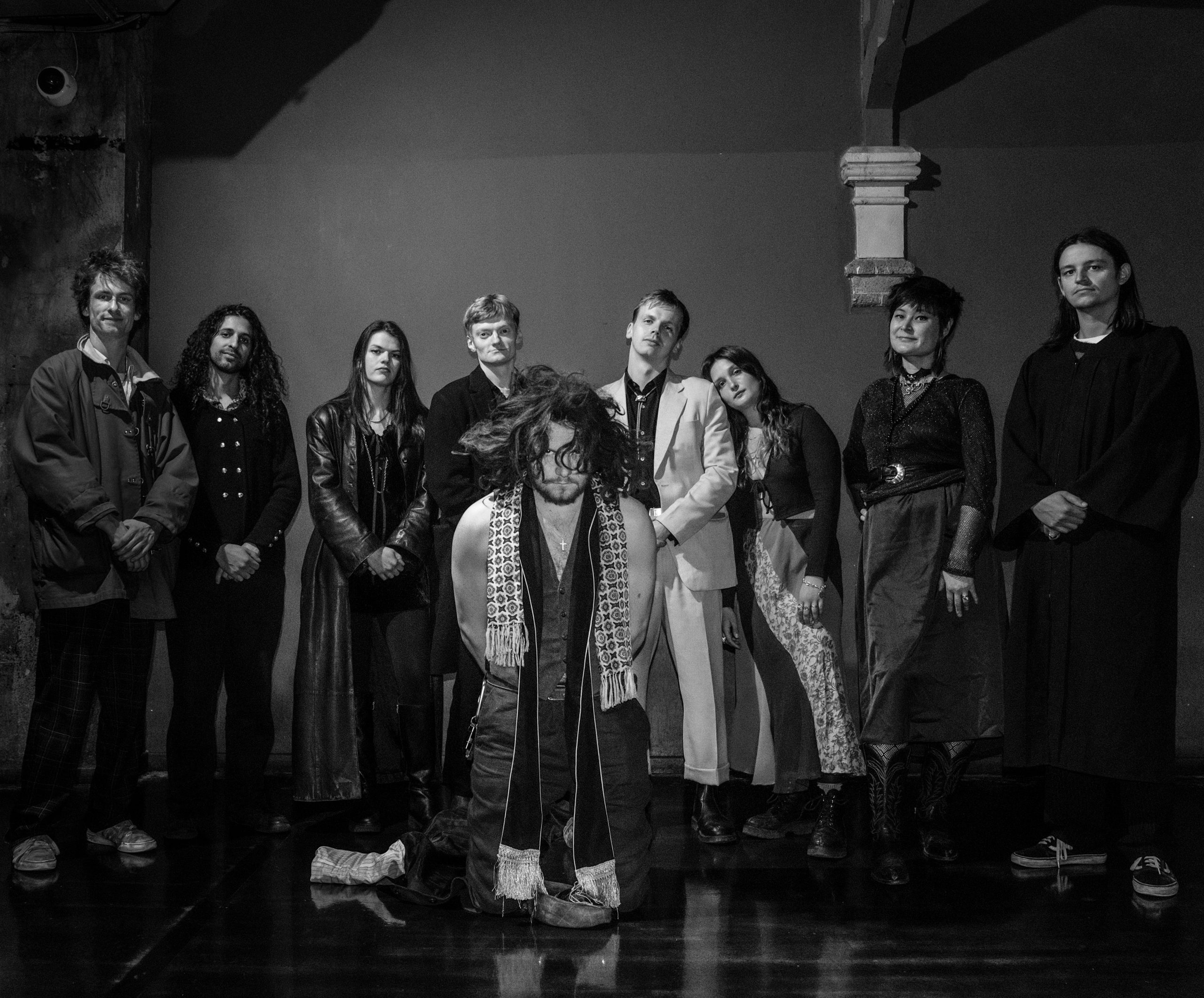Had anyone told me that the catchiest song of Summer 2023 would be a postmodern folk take on a 14th century hymn, complete with lyrics in Medieval Latin, I would have been more than a little taken aback – but this is what happens when you bring into play Bishopskin, one of the most unexpected and genuinely refreshing bands on the London alternative scene.
Exploring different facets of religious spirituality while delivering a new spin on British folk music is something they have been doing ever since their very earliest releases, but this latest single offers a new angle altogether, and the result is oddly compelling: both in the tightness of its execution, and in how it manages to worm its way into the brain at the very first listen.
A little bit of history first (the historian in me loves a track that allows me to do this): Stella Splendens, sometimes referred to also as Stella Splendens in Monte, is a polyphonic hymn in Medieval Latin drawn from the pages of the Llibre Vermeill de Montserrat, a 14th century devotional manuscript which contains prayers, commentaries, and most importantly for us, some of the earliest Christian music recorded with notations.
One note from within the manuscript feels particularly relevant to the Bishopskin take on this song: the music is included, the scribe notes, ‘because the pilgrims wish to sing and dance during their night-
time watch at the church of the Blessed Mary of Montserrat’. Stella Splendens is, then, a song that was always meant to be danced to. And the Bishopskin version understands this very well, because it is nearly impossible not to dance to it.
The very first bars, setting an almost polka-like rhythm, demand it; the bouncy pace kept by the song throughout encourages it. If there was to be a soundtrack to a hypothetical movie about the dancing
madness which once swept through Medieval France, this song would be in it.
There are two things that make Bishopskin stand out, and Stella Splendens is a perfect representation of both: the way in which they manage to always come up with something unexpected which is at the time unequivocally in their voice, and their ability to produce compositionally complex tracks without losing their immediacy.
As far as the latter is concerned, this track is especially astute in the choice of its layers: the lead vocals are almost philological to Medieval singing, the core of the composition draws from different corners of the history of folk music (and of its geography, from old England to Eastern Europe, the influences of both of which are clearly heard), the production is extremely modern in its crispness and precision, and it all blends together in such a way that the song is almost a visceral compelling to dance – but once dissected, it reveals an attention to detail that reveals how much fine-tuning was required to make it come across so instantly.
And for the former, this is perhaps the most quintessentially Bishopskin release yet: it has all of the
band’s hallmarks – the unusual, rousing vocals (here primarily courtesy of Tati Gutteridge, normally in charge of the brass section, whose impressive vocal performance gives yet another unique twist to this track); the sincere, unprejudiced approach to the spiritual element, in that the song is not simply playing with the Medieval hymn, it is talking to it; the visceral element, here channelled by an understanding that the original music is old and sounds old, and that there is power in that inherent sense of Time being projected to the listener.
And also, perhaps most important of all, a sincere desire to have fun with the music, which comes through in the speeding-up of the tempo, in the blending together of the vocal lines, in the way in which the finished product comes across not solemn, but joyous.
It is not just another unexpected twist from Bishopskin – at this point, we have learnt to expect the unexpected from this band – it is also even more evidence of maturity, a bold and fully successful attempt to prove that folk and even religious music can be fully relevant to a modern audience, that something sounding entirely contemporary can be created by going back to the very roots of our concept of sound; it is experimental, intelligent, and full of soul. And extremely catchy, of course.
Check it out, here
Find out more via the bands Facebook














No Comment